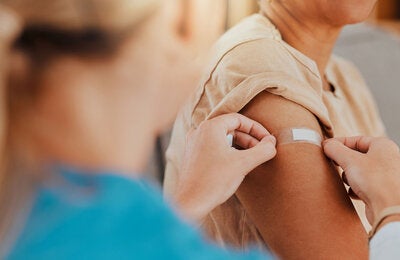Guatemala City, July 19, 2013. The President of Guatemala, Otto Pérez Molina, and the Director of the Pan American Health Organization/World Health Organization (PAHO/WHO), Dr. Carissa F. Etienne, have signed the Country Cooperation Strategy (CCS) for the period 2013-2017.
According to Dr. Guadalupe Verdejo, PAHO/WHO representative in Guatemala, the challenges identified by the Strategy include: a) reducing inequalities in the access to health services; b) promoting intersectoral approaches; c) reducing malnutrition; d) reducing maternal and child mortality; and e) increasing public health spending.
Dr. Etienne explained that the Strategy was designed through consultations and dialogue with the national authorities and other stakeholders. The specific characteristics of the country were taken into account. "The document that we are now signing is based on the priorities stated in the policy and the strategies that the Government of Guatemala has set, and on the commitments that the country has made in regional and global health forums," she said.
President Pérez Molina said that his government recognizes the priorities set in the CCS and pointed out the need for a comprehensive approach to the policies formulated at the local, departmental, and national levels, in order to provide health care in the most neglected places.
"We are making efforts to reduce chronic malnutrition and that means focusing on mothers and children. We are aware of the inequalities: the challenge is to gradually increase the resources that the Ministry of Public Health requires to increase coverage in the country," the President explained.
The CCS was signed by the Minister of Public Health and Social Welfare, Dr. Jorge Villavicencio, and by President Pérez Molina, Dr. Etienne, and Dr. Verdejo.
The CCS is part of the PAHO/WHO country-focused cooperation policy and is aligned with the national plans of the Organization's Member States. The document was drafted after an analysis of the health situation and in consultation with the Ministry of Public Health and Social Welfare, other government institutions, representatives of civil society organizations, academia, and cooperation agencies that work in the health sector.
PAHO/WHO works with its member countries to improve the health and quality of life of the people of the



